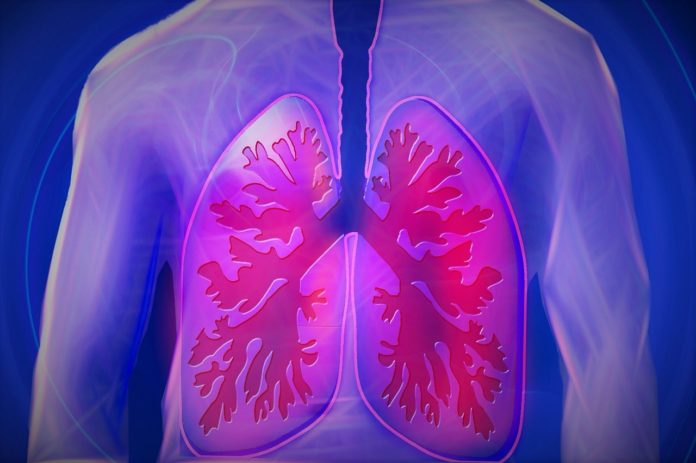Chest CT can differentiate between negative and positive lab results for COVID-19 based on presence of pulmonary consolidation
Presence of pulmonary consolidation in chest CT scan of suspected COVID-19 patients can help separate negative initial lab test results from positive cases, according to a new study published in the American Journal of Roentgenology (AJR).
Researchers exploring the diagnostic value of chest CT for coronavirus disease (COVID-19) pneumonia, especially for patients with negative initial results, found that the less pulmonary consolidation on chest CT, the greater the possibility of negative initial RT-PCR results. RT-PCR testing, also known as reverse transcription-polymerase chain reaction, is the most reliable test for detection of COVID-19 infection in the nasal or throat swab of suspected patients.
Data of 21 patients (nine men, 12 women; age range, 26-90 years) with confirmed COVID-19 pneumonia from five non-specialized infectious disease hospitals across Guangzhou were analyzed.
After undergoing chest CT and swab RT-PCR tests within 3 days, patients were divided into two groups: seven patients with negative initial results (who were found to have positive results after a second RT-PCR test 2 days later) and 14 patients with initial positive results.
Compared with the positive initial RT-PCR results group, CT of the group with negative initial RT-PCR results was less likely to indicate pulmonary consolidation (p < 0.05)
“Most of the COVID-19 lesions were located in multiple lobes (67%) in both lungs (72%) in our study,” said lead investigator Dandan Chen of Guangzhou First People’s Hospital in China. Authors also added that the CT findings observed most frequently were ground-glass opacities (95%) and consolidation (72%) with subpleural distribution (100%) and 33% of patients had other lesions around the bronchovascular bundle.
Additional chest CT findings identified by researchers were air bronchogram (57%), vascular enlargement (67%), interlobular septal thickening (62%), and pleural effusions (19%).
Compared with the positive initial RT-PCR results group, CT of the group with negative initial RT-PCR results was less likely to indicate pulmonary consolidation (p < 0.05).
Acknowledging that RT-PCR detection can be affected by laboratory reagents, test method, and subjective operability, authors noted that, theoretically, the multicenter nature of this study should have reduced interference by such factors.
“When patients with suspected COVID-19 pneumonia who have an epidemiologic history and typical CT features have negative initial RT-PCR results,” the authors of this study concluded, “repeated RT-PCR tests and patient isolation should be considered.”


